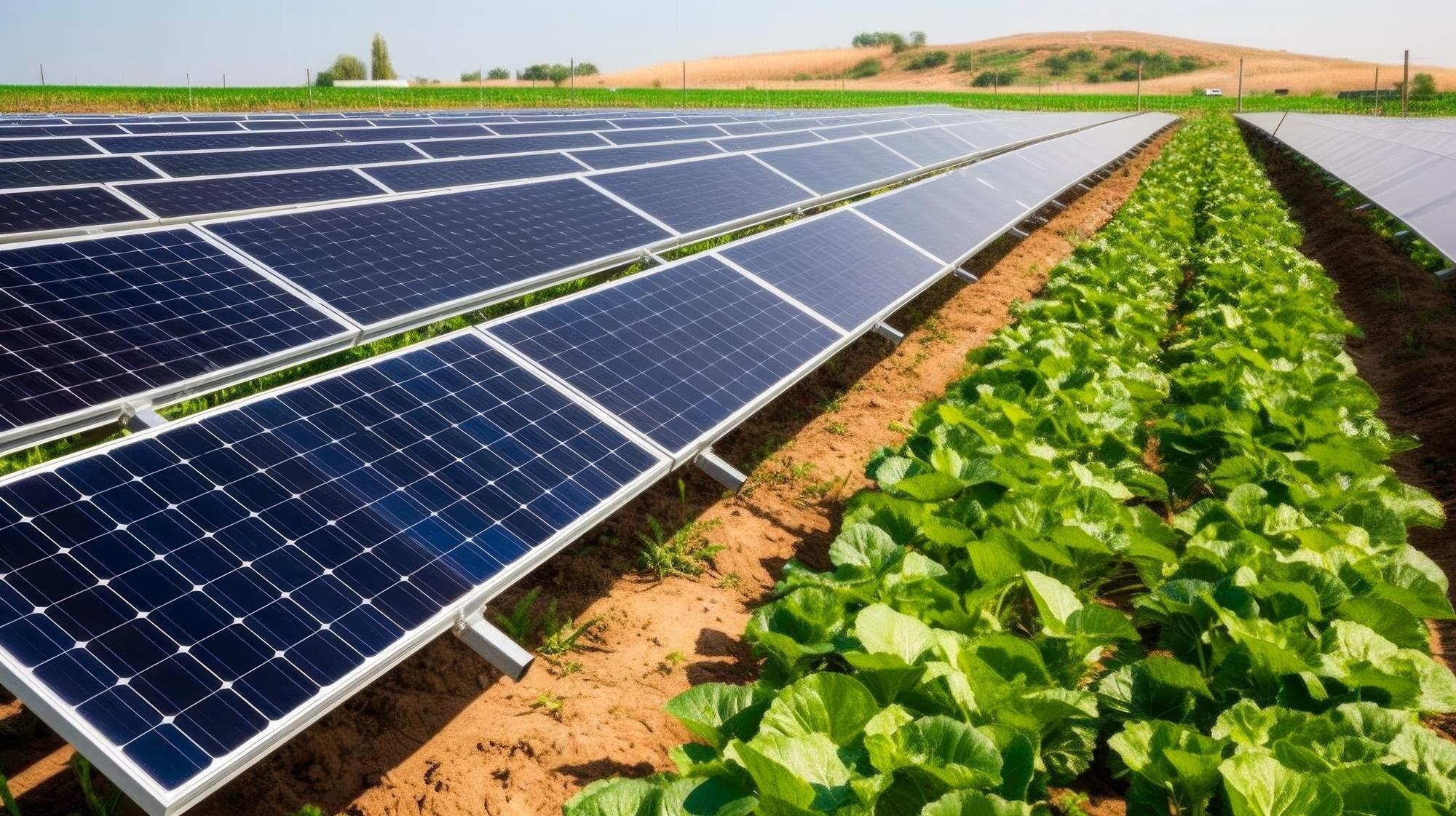
Agricultural solar solutions encompass a range of technologies designed specifically for the agricultural sector. These solar systems leverage the power of the sun to generate electricity, which can be used to power various farming operations. From irrigation pumps and lighting systems to greenhouse climate control and electric fencing, agricultural solar solutions offer a sustainable alternative to traditional energy sources.








When it comes to sustainable farming practices, harnessing solar energy has become increasingly popular. Agricultural solar solutions offer a multitude of benefits, from reducing electricity costs to minimizing carbon footprints. Here, we’ll discuss some types of agricultural solar solutions, highlighting their features, benefits, and applications.
Access to clean water is essential for both livestock and crop irrigation. Solar-powered water pumping systems offer a reliable and sustainable solution for supplying water on farms. These systems use solar energy to pump water from wells, rivers, or other water sources into storage tanks. The stored water can then be used for various purposes, such as irrigation, livestock watering, or even drinking water for farm workers. Solar-powered water pumping systems provide a cost-effective and environmentally friendly alternative to conventional diesel or electric pumps.
Solar panels can be utilized to power irrigation systems on farms, providing a renewable energy source for watering crops. By installing solar panels near water sources such as ponds or wells, farmers can generate electricity to power pumps and sprinklers. This eliminates the need for grid electricity, resulting in cost savings and increased energy independence. Additionally, solar-powered irrigation systems can operate even in remote locations, where access to the electrical grid may be limited.
Effective ventilation is crucial for maintaining optimal conditions in agricultural buildings such as barns and greenhouses. Solar-powered ventilation systems utilize solar energy to power fans that circulate air, regulating temperature and humidity levels. These systems are particularly beneficial in hot climates, as they can reduce heat and moisture build-up, creating a comfortable environment for livestock and healthy growth for plants. By relying on renewable energy, farmers can reduce their carbon emissions and operating costs.
Electric fencing is commonly used in farming to protect crops, livestock, and property from trespassers or predators. Solar-powered electric fencing systems utilize solar panels to charge a battery, which powers the electric fence. These systems are highly efficient and can be easily installed in remote areas without access to the electrical grid. By employing solar energy, farmers can ensure the security of their livestock and crops while minimizing operational costs.
Monitoring environmental conditions and crop health is crucial for optimizing agricultural productivity. Solar-powered remote monitoring systems enable farmers to collect real-time data on factors such as temperature, humidity, soil moisture, and sunlight exposure. These systems utilize solar panels to power sensors and transmit data wirelessly, allowing farmers to monitor their fields from a central location. By using solar energy for remote monitoring, farmers can reduce the reliance on batteries or grid electricity, making the system more sustainable and cost-effective.
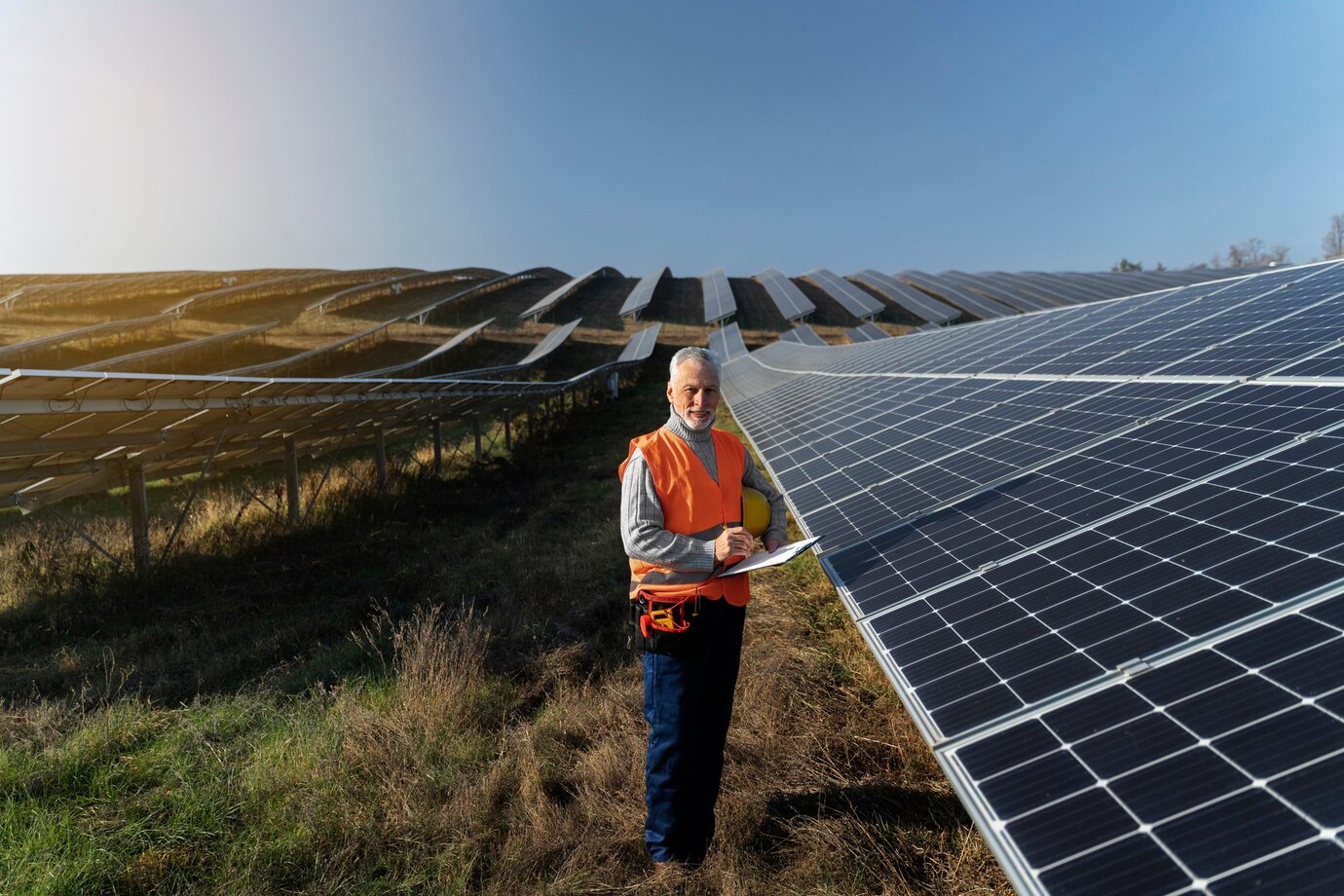
As Pakistan grapples with energy shortages, acute water shortages and the challenges of climate change. Frequent power outages and load shedding have negatively impacted various industries, including agriculture. Agriculture is the backbone of the Pakistani economy, providing employment and contributing significantly to the country’s GDP. The agricultural sector in Pakistan heavily relies on electricity to power irrigation systems, water pumps, and various agricultural machinery. The lack of a stable electricity supply has hindered the growth and productivity of farms, leading to decreased crop yields and financial losses for farmers. The need for sustainable and reliable sources of energy has become more critical than ever.
This is also a great reality that Pakistan is one of those countries that has abundant sunlight throughout the year, Pakistan has the ideal conditions for harnessing solar power. Solar panels, strategically placed on agricultural lands, can generate electricity and provide a reliable energy source for farmers. This renewable energy solution has the potential to transform the agricultural landscape, ensuring uninterrupted power supply, allowing farmers to operate their agricultural activities without interruptions and optimizing crop production Agricultural solar solutions offer a sustainable and reliable alternative to traditional energy sources.
1.Cost-Effectiveness:
One of the primary reasons why agricultural solar solutions are becoming a basic need in Pakistan is their cost-effectiveness. With the rising cost of traditional energy sources, such as fossil fuels, agricultural solar solutions offer a cost-efficient alternative. Once the initial investment in solar panels is made, farmers can significantly reduce their electricity bills. Moreover, solar panels have a long lifespan and require minimal maintenance, making them a financially viable choice in the long run.
2.Reliable Source of Energy:
Pakistan’s agriculture heavily relies on electricity to power irrigation pumps, machinery, and processing units. However, power outages and unreliable grid connections often hamper agricultural activities. By utilizing agricultural solar solutions, farmers can generate electricity on-site, reducing dependence on the grid and ensuring a consistent and uninterrupted power supply.
3.Energy Independence
Relying on solar power provides farmers with increased energy independence. They are no longer at the mercy of fluctuating energy prices or power outages. The sun is a renewable resource that farmers can harness year-round, providing a stable and reliable source of electricity for their farming operations.
4.Environmental Sustainability
With growing concerns over climate change and environmental degradation, adopting renewable energy sources is crucial. Agricultural solar solutions produce clean and green energy, significantly reducing carbon emissions and promoting environmental sustainability. By transitioning to solar power, the agricultural sector can play its part in mitigating climate change and preserving the environment.
5.Enhanced Productivity and Profitability
Uninterrupted power supply through agricultural solar solutions can lead to increased productivity in the agricultural sector. Farmers can efficiently operate irrigation systems and machinery, resulting in higher crop yields. This, in turn, contributes to increased profitability and economic growth in rural areas.
6.Water Conservation
Water scarcity is a major challenge faced by farmers in Pakistan. Agricultural solar solutions can help address this issue by powering solar-powered irrigation systems. These systems can be designed to optimize water usage and reduce wastage. By harnessing solar energy, farmers can effectively manage water resources and achieve more sustainable irrigation practices.
7.Rural Development
Installing agricultural solar solutions not only benefits farmers but also promotes rural development. By bringing electricity to remote areas, solar-powered systems help improve the living standards and access to modern amenities in rural communities. Additionally, the integration of solar technology can create job opportunities, contributing to rural employment and economic empowerment.
SNM Solutions is known as one of the best turnkey agricultural solar solutions provider companies.
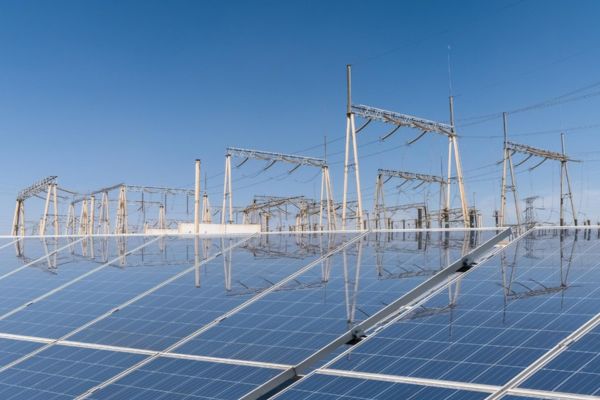
An On-grid solar system, also known as a grid-tied or grid-connected solar system, is a type of photovoltaic (PV) system that allows individuals or businesses to generate electricity from solar energy and feed it directly into the existing electrical grid.
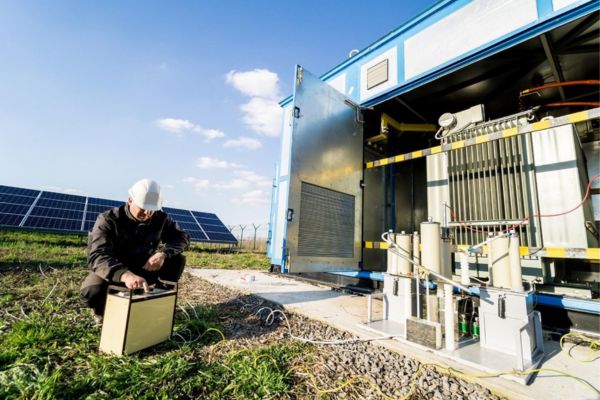
Off-grid solar systems are commonly used in remote areas where it is impractical or cost-prohibitive to connect to the grid. They are also popular for cabins, campsites, and other locations where grid access is limited or unavailable.
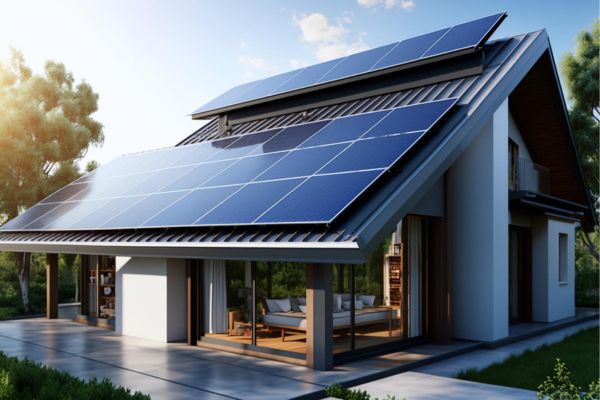
A Hybrid Solar System is a combination of on grid and off grid solar systems. It stores your excess solar energy generated by solar panels with batteries and also provides backup power during grid failures.

M27- IT Tower, Lahore
Welcome to SNM Solutions, your key to harnessing the power of the sun. We are a leading solar energy company dedicated to providing innovative, reliable, and affordable solar solutions for residential, commercial, and industrial needs.
Copyright © 2026 SNM Solutions All Rights Reserved Powered by Metaware Global
+92 313 878 3630